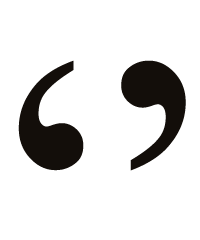
Yesterday, I tweeted: “BBC reports a woman was ”gang-raped” in India. What, pray tell, do the quotation marks mean?” I was responding to a BBC headline concerning a Swedish tourist whose husband was beaten and tied, then forced to watch as a group of men raped her. I note that the inverted commas appeared in Al Jazeera too. In short order I had explanations from @johnbowman (CBC) and @grvlx001 (BBC).
@johnbowman tweeted: It’s BBC style to use inverted commas where others would use “allegedly” or “reportedly.” I agree it’s jarring.
@grvlx001 tweeted: it means we’re reporting someone else’s words, while our own correspondents check the story. The headline is updated now anyway
(I am grateful for their quick responses.)
When I read them, I interpreted the inverted quotes differently, as did many others. I interpreted them as a lay-reader, an average headline-skimmer who hasn’t a clue about the finer points of the BBC’s style policies. As a lay reader, I took the inverted quotes to mean something like: “illegitimate” or “questionable”. Maybe the victim was faking it. Or maybe her gang rape wasn’t that bad after all. After a once over in the hospital, they discharged her and she was back at the hotel in time for supper.
To be clear, I don’t believe the BBC intended to treat the matter in a cavalier way. They were applying a stylistic rule which probably works well enough for them ninety-nine times out of a hundred. The problem, as I see it, is that inverted quotes aren’t a matter of style. We’re not talking about the placement of a comma; we’re talking about figures that bear semantic weight. They mean something. The simple fact that people on twitter can explain to me what they mean proves my point.
And while lexicographers don’t document the meaning of figures like inverted quotes (because they aren’t words), nevertheless such figures can be documented in precisely the same manner as words. What is their common usage? What is their origin? (Or etymology, if you will.) How has their meaning and usage changed? These are the usual questions that compilers of dictionaries ask.
As noted above, inverted quotes have a common usage. It strikes me that the BBC’s style policy treats inverted quotes as if it were taking a word, like “cat”, but imposing its own usage on the word, e.g. a stripped black-and-white four-legged equine animal. This is all well and good, but there may come a time when it matters to readers whether they’re reading about cats or zebras.
I appreciate that the BBC wants to avoid accusations of libel and has a legal and ethical duty to independently verify the facts it reports. Inverted quotes are an economical way to indicate that it has not yet committed itself to factual claims. Nevertheless, there are less ambiguous ways to accomplish this … using the word “alleged” for instance.
As it is, when applied to incidents like gang-rape, inverted quotes are not neutral but contribute to a rising misogyny that draws to itself a sense of legitimacy from the trivializing placement of these figures. We do not need to feed more trolls in the act of preserving journalistic integrity. One would expect more from ”journalism”.